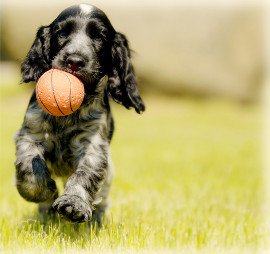 Dog poop is surely not the most pleasurable topic of conversation, unless you are like my seven- and three-year-old daughters, in which case poop is the most hilarious thing ever.
Dog poop is surely not the most pleasurable topic of conversation, unless you are like my seven- and three-year-old daughters, in which case poop is the most hilarious thing ever.
In our dog-friendly town of Meaford, dog waste is an important subject that needs to be discussed. Not only should pet owners understand the health risks associated with dog feces, we all need a gentle reminder from time to time how to be respectful of our environment, our neighbours, and the many tourists and visitors that frequent our beautiful town every day.
I was surprised to learn from the municipality how many people in our town flush their dog’s poop, plastic bags and all. At our local waste treatment facility, these plastic bags are regularly clogging up equipment in the sewage system. This not only causes major downtime, it also puts workers at risk of exposure to a number of dangerous pathogens. The vast majority of dog waste bags on the market are not water soluble, meaning they do not break down in water. An accumulation of bags in our sewage system can damage the expensive filtering equipment, cause blocked rainwater, and lead to flooding of bacteria-laden wastewater.
This is not only a problem in Meaford. Recently, dog poop bags were responsible for blocking 3,600 feet of storm drains in Canton, Massachusetts. This resulted in the flooding of neighbourhood yards and driveways, and took three days for municipal workers to clear the drains to begin the cleanup and decontamination process.
If you are going to flush dog poop, fine. But please, do not flush the plastic bags. In fact, the U.S. Environmental Protection Agency states flushing dog poop down the toilet (without the bag) is the safest means of disposal. Cat feces, on the other hand, should never be flushed. Cat waste contains a nasty parasite called toxoplasma gondii, which can infect both animals and humans. This parasite is pretty hardy, and can survive many water treatment systems.
Dog waste is a challenging issue for dog parks, neighbourhoods, hiking trails, and more. Dog feces is toxic for humans, animals, and plant life; it is loaded with bacteria, parasites, and viruses. Pathogens in dog poop can survive up to four years on the ground, even after the waste has been removed and washed away from the rain. These pathogens have the capacity to not only cause disease, they can be easily washed into our precious and vulnerable water systems. Studies show that between twenty and thirty percent of all bacteria in urban watersheds are due to dog feces alone. Even as little as one gram of dog poop can have up to 23 million fecal coliform bacteria, microscopic organisms that can cause serious waterborne disease. Dog feces also commonly contains a number of other nasty parasites and viruses: roundworms, hookworms, whipworms, coronavirus, giardia, salmonella, parvovirus, and more.
You may be thinking, “It’s just dog poop, how big of a problem can it be?” Well, to put things in perspective, in the U.S. approximately 11 million tons of dog waste is produced every year.
Rates of dog ownership are increasing year over year, with one-third of the world’s population owning at least one dog. Now more than ever, we need to be smart and responsible with how we handle and dispose of dog waste.
Now, in order to properly dispose of dog waste, you actually have to pick it up first. Our town has had a serious increase in the number of complaints of unclaimed dog poop lying about. Whether it’s at our beautiful beaches, our scenic walking and hiking trails, or our many neighbourhood sidewalks, unclaimed dog poop is becoming an increasing problem. And in many cases, the dog waste is in a bag but is still left behind for someone else to stumble upon.
This is a problem that makes our town look and smell unclean. If we are truly going to be a dog-friendly community, we need to set the example by practising responsible pet ownership, and it all starts with properly disposing of our pet waste.
A great example of community pride is the annual ‘Baggy’ spring cleanup. Held every May, hundreds of volunteers from the town gather to collect garbage, litter, and even poop bags to beautify our town; dog poop is a significant part of the waste collected.
Let’s do our part in keeping our amazing town clean and beautiful for everyone to enjoy!
Brandon Forder, known as The Pet Expert, is vice-president of Canadian Pet Connection, an industry leader in healthy pet lifestyles. Brandon has more than twenty-five years of experience specializing in pet health, nutrition, and behaviour. He has written hundreds of informative pet-related articles for newspapers, magazines, radio, and the popular Ask the Pet Expert Blog. Brandon is proficient in pet problem solving, and enjoys teaching others about smart and responsible pet ownership. To learn more, visit www.CanadianPetConnection.ca.












